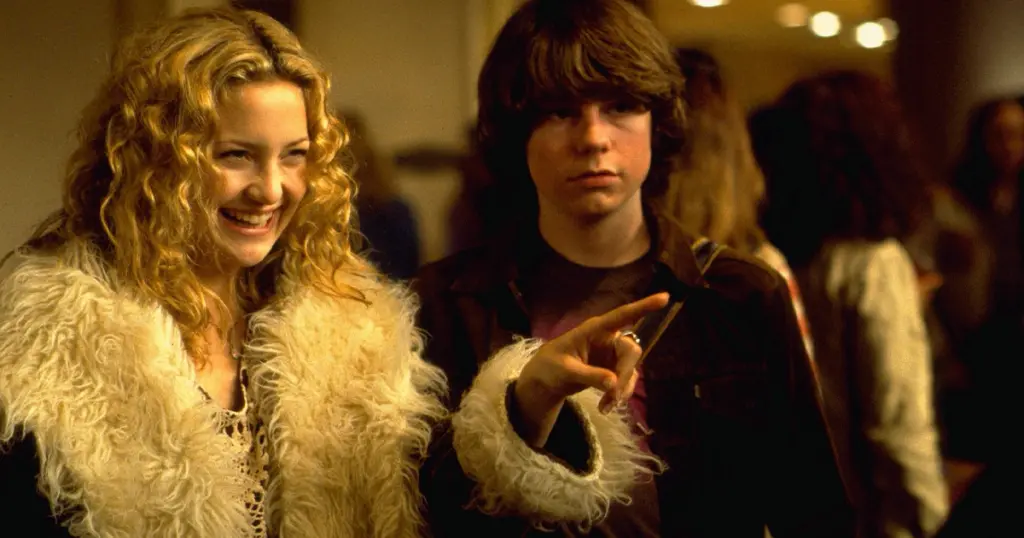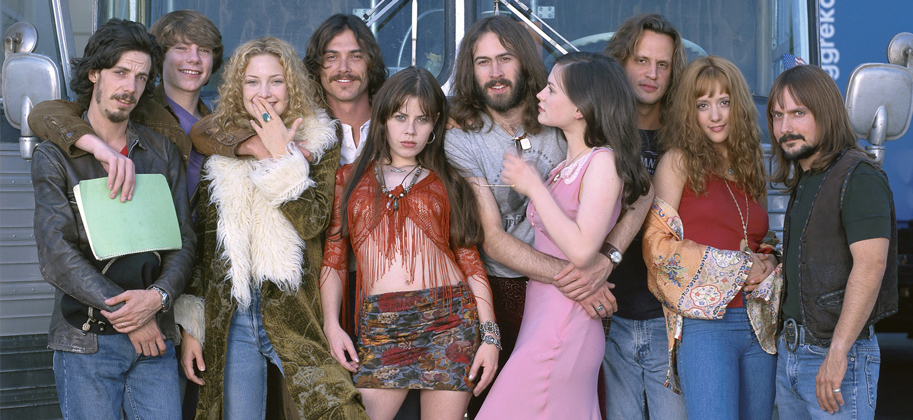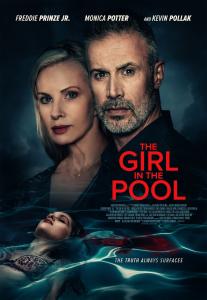We revisit Cameron Crowe’s seminal masterpiece, Almost Famous, the film which made Kate Hudson a household name.
People nowadays have forgotten just how good Cameron Crowe was at his peak. For the writer-director, Almost Famous was his masterpiece, which told the story of a teenage rock journalist on tour with a mid-level rock band in the seventies. For many of us, it remains one of the greatest modern films and a masterpiece that, almost twenty-five years later, remains a cultural touchstone for many of us. In this episode of Revisited, we examine Crowe’s seminal film and how it holds up all these years later.
One of the reasons that Almost Famous was such an essential film for Crowe is that it’s autobiographical. Like Spielberg’s recent The Fabelmans, Crowe fictionalizes his story somewhat, but many of the formative events that occurred in his life happen here. Like his main character, William Miller, Crowe was a teenage rock journalist for Rolling Stone Magazine. Crowe had begun writing for community newspapers at only thirteen and started a correspondence with Lester Bangs, the famous rock critic, at a young age. The man took Crowe under his wing, publishing his articles in his magazine Creem, which gave him the bonafide he needed to get hired by Rolling Stone, which he did at only fifteen years old. While the movie makes it look like editor Ben Fong Torres is shocked when he realizes William is just a kid, Torres had already met Crowe in person by this point. It should be noted that even though he was only fifteen, he had already graduated high school.
Crowe’s first gig took him on the road with the notoriously hard-partying Allman Brothers band for three weeks, and perhaps this is what influenced the story here. Years later, Gregg Allman, in his book My Cross to Bear, stated that many of the events that occurred in the film happened in real life, even at the end of the film where Stillwater briefly claims William made up facts to embellish his story. The Allman Brothers initially said the same thing about Crowe, but this was less malicious as it was a practical joke they played on him. They quickly confirmed the whole story was legit, paving the way for Crowe’s storied career – he still occasionally writes for Rolling Stone to this day.
The movie itself centers around Patrick Fugit’s William Miller, who yearns to get out from under the wing of his loving but overprotective mother. His love of rock n roll gives him the opportunity, especially when Philip Seymour Hoffman’s Lester Bangs takes an interest in him. He forms an attachment to the up-and-coming band Stillwater, mainly the “guitar player with mystique” Russell Hammond. Still, his true attachment is to their groupie Penny Lane, who is based on several real-life people, including I’m With the Band writer Pamela Des Barres. His mother agrees to William taking time off school to go on the road with the band, and while on tour with them, he comes of age, but he also has his eyes opened to the excess of rock n’ roll, the ego that overwhelms the music in the chase for fame, and the fact that, as a journalist, he may not be quite as chummy with the band as he thinks he is.
Patrick Fugit is excellent as the sensitive William. When the movie came out, many claimed that the R-rated film wasn’t hard enough – that we didn’t really witness the excess of rock n’ roll. This can be explained by the fact that we’re seeing the whole movie through the eyes of William, who’s young and naive, and not exactly hip to everything that’s happening, a theme that becomes clearer if you watch Crowe’s extended version of the film, which has been renamed “Untitled.”
The film will always be remembered for introducing the world to Kate Hudson, who became a star overnight playing Penny Lane. Like William, she’s naive and sees herself as a muse to the band members she sleeps with, only to gradually realize in the course of the film that she’s being used. Some will look back at this and say she’s playing the “Manic Pixie Dream Girl” type, but this is false. She has much more depth than that, especially in the extended cut, and it’s worth noting that, in the end, Penny chooses herself rather than any of the film’s leading men.
Billy Crudup was one guy who didn’t become a household name after the movie came out but probably should have. He was actually a late substitution for Brad Pitt, and he’s magnetic in the film. He became an in-demand character actor, but how did this not make him a star? He’s perfect as the cool guitar player a guy like William would fall under the spell of, with him seemingly based partly on Gregg Allman, Jimmy Page and Glenn Frey. Jason Lee is also exceptional as the more egotistical lead singer – the Don Henley/ Robert Plant type.

Frances McDormand is also fantastic as William’s mother. Indeed the movie works very much as a love letter to Crowe’s mother, with her delivering a soulful performance as a woman who, yes, is overbearing but is also passionate in wanting her boy to pursue his dreams and willing to allow him to make the mistakes he needs to grow as a man. Plus, look out for early roles for Zooey Deschanel, Anna Paquin, Jimmy Fallon, Rainn Wilson and even Marc Maron, whose line, “Close the Gates” has become part of the theme song to his podcast.
One thing that also needs to be singled out here is the soundtrack, which is packed to the gills with the creme de la creme of seventies rock classics. It’s so good that one wonders how it was even possible. Part of it is the fact that Crowe maintained excellent relationships with many of the people in the film whose music he uses, and he even got Led Zeppelin members Robert Plant and Jimmy Page to allow him to use four songs – which was almost unheard of at the time. Notably, though, they did not allow him to use ‘Stairway to Heaven’, which he had intended to play in its entirety in a scene you can find on the Blu-ray – albeit with Crowe cueing you on when to start the song on your own. According to legend, the “I Am A Golden God” line was uttered by Plant himself following a hard night of partying, although it was Duane Allman who jumped off a roof into a pool in the midst of a party.
Despite Almost Famous’ classic status, the movie was a controversial box office bomb in 2000, only earning 47 million domestically on a 60 million budget. Likely it eventually turned a profit as it became a perennial favourite on DVD, but it was also, arguably, the film Crowe peaked with, although his follow-up, Vanilla Sky, would become a cult favourite that, to this critic, is something of a masterpiece in itself. Elizabethtown and Aloha would become notorious flops, with only his Matt Damon vehicle, We Bought a Zoo, doing well in theatres. Since then, Crowe has maintained a lower profile, although he still writes for Rolling Stone and recently produced a well-received documentary – David Crosby: Remember My Name. Rumour has it he may be plotting a comeback with a Joni Mitchell biopic.
Here’s an interesting addendum to Almost Famous. If you ask many movie journalists and bloggers what their favourite movies are, chances are many of them will include Almost Famous. Why is this? Because so many of us had “almost famous” experiences of our own, going on junkets, set visits, parties, etc. While it may have initially hampered journalistic objectivity, many of us also came to the same conclusion that William does in the film – which is that the relationship between journalist and subject is ultimately transactional. If I were assigning someone getting into this business one movie to watch – it would be this one, which holds a special place in my heart.
Originally published at https://www.joblo.com/almost-famous-cameron-crowes-masterpiece-revisited/






